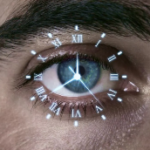JUNE IS CATARACT AWARENESS MONTH

At Ophthalmic Consultants of the Capital Region we look forward to Cataract Awareness Month each year because it gives us an opportunity to let people know that they don’t have to live with poor vision due to cataracts. There are so many advanced options available to make sure you enjoy optimal eyesight to live life to its fullest.
Cataracts are the leading cause of vision loss in Americans 65 and older and the principal cause of blindness in the world. In fact, there are more cases of cataracts worldwide than there are of glaucoma, macular degeneration, and diabetic retinopathy combined. Cataracts typically affect our older patients, but it’s not unheard of to have younger patients who have developed cataracts due to injury or excessive sun exposure. The difficult part about cataracts is that they are usually developed gradually, which makes it difficult for the patient to realize that their vision is steadily declining. That’s why we feel it’s important to educate on what to look for so they can be aware of it if they begin to develop cataracts. It’s not only a matter of enjoying optimal vision, but can also be a matter of safety. Several studies have shown less hip fractures occur and driving accidents after cataract surgery.
What are cataracts?
A cataract is a clouding of the eye’s natural lens. When looking at something, light must travel through the lens and focus onto the retina, a layer of light-sensitive cells at the back of the eye which functions as film for an older camera (captures light). A clear lens focuses light properly onto the retina.
That lens, which is made mostly of water and protein, can develop clumps of protein with age, clouding the lens. When cloudy, all of the light does not make it to the retina, resulting in blurred vision. How quickly cataracts develop depends on the individual. Mild clouding of the eye may not affect vision much, but it is when a majority of the lens becomes clouded that serious vision problems develop and treatment becomes necessary.
What are the symptoms of cataracts?
Signs and symptoms of cataracts vary based on the severity of the condition. The larger and denser the cataracts, the more they will affect vision, requiring cataract surgery for treatment.
Common symptoms of cataracts include, but are not limited to:
- Dim or decreased vision
- Film or fog over vision
- Difficulty seeing street signs, curbs, and freeway exits
- Difficulty seeing traffic lights
- Halos or glare around lights especially at night
- Difficulty driving at night
- Difficulty seeing TV, movies, or the faces
- Difficulty reading printed materials, even with good light and proper glasses
Many times, the cataract progresses so slowly that you may not notice how poor your vision is until the cataract is treated. It may be that all you need is a change in glasses, but these symptoms can be a sign of cataracts. As the cataract worsens, it may begin to interfere with your daily activities. Several studies have shown that cataract surgery can prevent injury, such as broken hips.
Cataract Treatment
The good news is that cataracts are treatable with cataract surgery. While even 30 years ago cataract surgery used to be somewhat crude and leave patients to rely on thick-lens glasses for the rest of their lives, today, cataract surgery is fairly simple and practically painless. Treatment for cataracts is straightforward; it is an outpatient procedure, and most patients are able to resume their normal activities quickly. During the surgery, the doctor removes the deteriorating lens and replaces it with an artificial one known as an intraocular lens, or IOL. “The procedure typically takes around 20 minutes,” said Dr. Allen Zieker. “Millions of these surgeries are performed each year, and cataracts surgery is considered to be among the easiest and safest,” he added.
There are four basic types of intraocular lenses (IOLs) that can be used during cataract surgery:
- monovision
- toric
- accommodating
- multifocal
It’s important to choose a cataract surgeon such as Dr. Allen Zieker who is experienced with all FDA approved IOLs.
By raising awareness about cataracts through Cataracts Awareness Month, Ophthalmic Consultants of the Capital Region hopes to encourage patients to keep up with their comprehensive annual eye exams. “Early signs of cataracts are easily detected during our comprehensive eye exams,” said Dr. Allen Zieker. Call us today to schedule your appointment.
OPHTHALMIC CONSULTANTS OF THE CAPITAL REGION
3 Atrium Drive
Suite 100
Albany, NY 12205-1417
Phone: (518) 438-5273
OPHTHALMIC CONSULTANTS OF THE CAPITAL REGION
10 Maxwell Dr
Suite 103
Clifton Park, NY 12065-2933
Phone: (518) 383-8589
OPHTHALMIC CONSULTANTS OF THE CAPITAL REGION
670 Franklin Street, Suite 101
Schenectady, NY 12305
Phone: (518) 370-0066
OPHTHALMIC CONSULTANTS OF THE CAPITAL REGION
2500 Pond View
Suite 101
Schodack, NY 12033-9776
Phone: (518) 477-2391
OPHTHALMIC CONSULTANTS OF THE CAPITAL REGION
2222 6th Avenue
Troy, NY 12180-2203
Phone: (518) 274-3123

